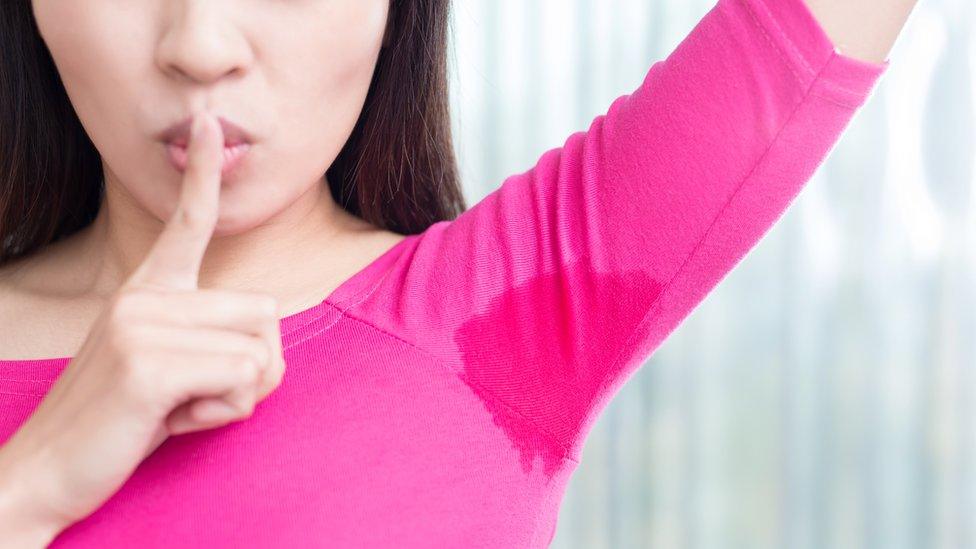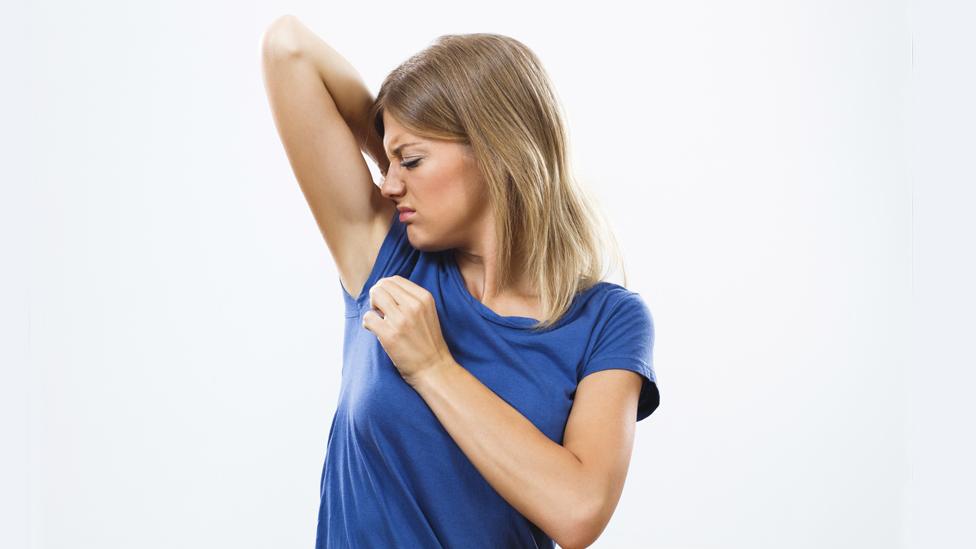New generation of deodorants 'on the way'
- Published

Experts believe they have found a better way to tackle body odour (BO).
The key, they say, is understanding how skin bacteria create the smell from virtually odourless armpit sweat.
Two teams, at the Universities of York and Oxford, say they have now deciphered the first step in this molecular process.
It could pave the way for a new generation of deodorants designed to block this unpleasant chain of events, the journal eLife, external reports.
Sweat
Sweat is made by two types of glands on the skin:
Eccrine glands, all over the body, produce sweat associated with exercise, which helps us keep cool and does not smell
Apocrine glands, in the hairy armpits and genital areas, produce sweat containing a number of complex molecules - including proteins - that are odourless when secreted but can be turned into BO by bacteria
Even very small traces of the BO chemicals these bacteria produce can smell cheesy, sour, musky and onion-like.
Deodorant or antiperspirant?
Deodorant uses perfume to mask the smell, plus ethanol or an antibacterial agent to kill the bacteria.
Antiperspirants typically contain aluminium chloride, which reduces the amount of sweat released by temporarily plugging the skin pores that lead to the sweat glands.
Co-author Dr Gavin Thomas, from the Department of Biology at the University of York, said: "Modern deodorants act a bit like a nuclear bomb in our underarms, inhibiting or killing many of the bacteria present in order to prevent BO.
"Only a small number of the bacteria in our armpits are actually responsible for bad smells."
These Staphylococus hominis bacteria use a "transport" protein to recognise and swallow up the odourless compounds secreted in sweat that they convert into BO.
And Dr Thomas and colleagues say this could be used as a blueprint to develop a more guided weapon against BO - a new type of spray or roll-on deodorant containing a substance that would stop the transport protein from functioning.
Their work was funded by the Biotechnology and Biological Sciences Research Council along with an industry grant from Unilever.
There are already some practical things you can do to help prevent BO.
Stop the sweat
Wash every day
Use an antibacterial soap to clean your armpits
Use a deodorant or antiperspirant
Shave your armpit hair to allow sweat to evaporate quicker
Wear clothing made of natural fibres, such as cotton, that allow your skin to breathe
Wear clean clothes
- Published31 August 2016

- Published18 December 2017
